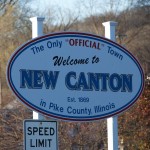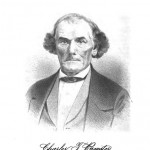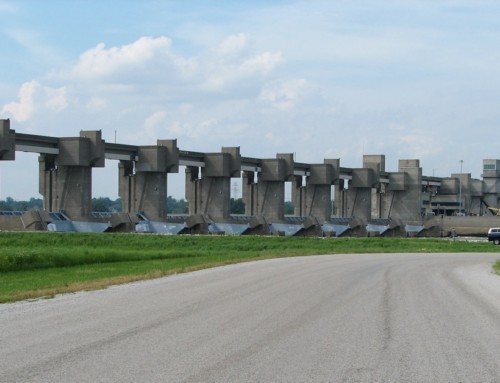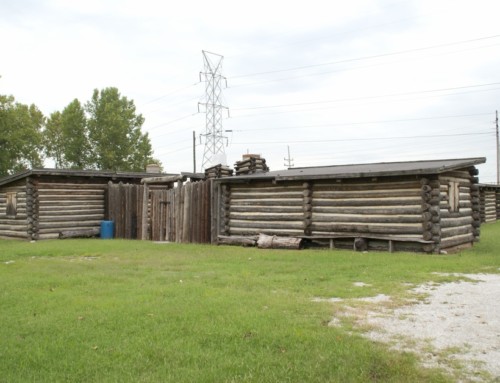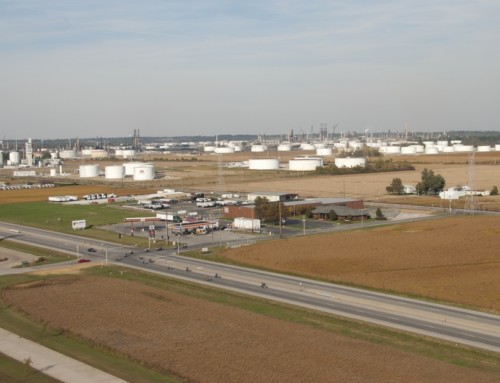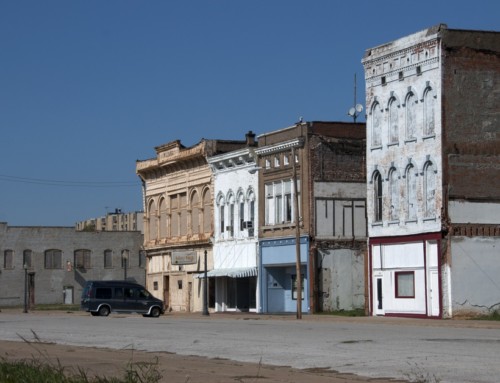Visitor Information
Get your questions answered from the folks at the Pike County Chamber of Commerce (217.285.2971).
History
Quincy founders John Wood and Willard Keyes pitched tents in this area when they first arrived from the East, but Charles T. Brewster, Hiram Smith, and Jesse Tittsworth get credited for starting the village in 1835. The government sold land in the township for $1.25 an acre; many early residents raised the money to purchase parcels by hunting and trapping the plentiful game in the area (like raccoons), often earning enough to buy 160 acres.
Snakes were also plentiful but far less popular. The nearby bluffs were great habitat for rattlesnakes, but local residents weren’t too fond of them, so they basically wiped them out. In spring when the snakes were still sluggish (they brumate), residents poked long poles with bearded hooks into their dens, pulling them out by the hundreds and killing them.
Joseph Jackson founded a village called Pleasant Vale that is just northeast of the current village of New Canton. Pleasant Vale got a post office in 1827 and a formal village plat in 1836. The village was on a major route, so it had a stagecoach stop, as well. When Mormons fled to Illinois from Missouri, some moved to the area around Pleasant Vale. In 1841, their church counted nearly 170 members, but they left when the main community of Mormons were forced out of Nauvoo. The news for Pleasant Vale didn’t get much better after that. When the railroad came through the area, they chose New Canton for the station instead of Pleasant Vale. In 1872, the post office as moved to New Canton and the following year Pleasant Vale dissolved.
Folks at New Canton, on the other hand, must have been feeling pretty good about their prospects. The village incorporated in 1869, which is about the time the railroad came through. Many of the early residents came from the East. A few of them worked in river occupations, like William A. Davis, who really got around. He was a flat-boat pilot for 20 years and claimed to have traveled 4,000 miles on the Mississippi.
New Canton grew into a robust small town, with the usual businesses: several stores, blacksmiths, wagon shops and carpenters, a boot and shoe shop, a cooper, a paint store, a flour mill, two hotels, a livery, and four doctors. In 1880, its 424 residents supported two churches, one Methodist and one Baptist, and two choirs. The village was a rural shopping destination, as area folks shopped at the general stores and lumber yard and ate at the restaurant. For entertainment, residents might enjoy a show from a respected cornet band, shoot some pool, or hang out at one of the secret societies (Masons, Mystic Circle, Knights and Ladies of Security, Royal Neighbors, Loyal Americans, etc.).
Like many rural communities, New Canton has been gradually losing population as farms have consolidated into larger operations and younger generations have moved away in search of better economic opportunities. New Canton’s population peaked before World War II with just over 500 residents. New Canton today has fewer than 400 permanent residents and very little industry in town.
Entertainment and Events
Festivals
New Canton throws a harvest festival in September that is a long-time tradition; it includes live music, a parade, and food, of course.
New Canton is one of the communities that participates in the Pike County Fall Pickin’ Days, a chance to enjoy fall color and support local vendors in small towns as you drive around the countryside. Each community offers something a little different for visitors (October).
**Looking for more places to visit along the Mississippi River? Check out Road Tripping Along the Great River Road, Vol. 1. Click the link above for more. Disclosure: This website may be compensated for linking to other sites or for sales of products we link to.
Where to Go Next
Heading upriver? Check out Kinderhook.
Heading downriver? Check out Rockport.
Community-supported writing
If you like the content at the Mississippi Valley Traveler, please consider showing your support by making a one-time contribution or by subscribing through Patreon. Book sales don’t fully cover my costs, and I don’t have deep corporate pockets bankrolling my work. I’m a freelance writer bringing you stories about life along the Mississippi River. I need your help to keep this going. Every dollar you contribute makes it possible for me to continue sharing stories about America’s Greatest River!
©Dean Klinkenberg, 2024, 2021, 2018,2013,2011
